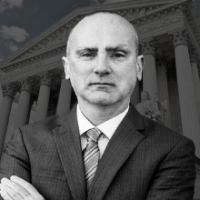Midlothian Misdemeanor Lawyer, Texas
Sponsored Law Firm
-
 x
x

Click For More Info:
-
Stephanie Alvarado Attorney at Law
100 N Central Expy Suite 805 Richardson, TX 75080» view mapCriminal Defense Law Fighting Against Unjust Prosecution
Attorney Stephanie Alvarado is there for her clients when help is needed right away. Helping people charged with crimes in Texas for over 20 years.
800-988-5471
Craig Allen Dameron
With over 15 years of experience representing clients charged with DWI and other criminal charges in Tarrant County and throughout the Dallas-Fort Wor... (more)
Christopher Lankford
✓ VERIFIED *Status is reviewed annually. For latest information visit hereChristopher Lankford is licensed to practice law in all Texas state courts, Federal court (Northern District of Texas), and the Supreme Court of the U... (more)
Robert Keating
✓ VERIFIED *Status is reviewed annually. For latest information visit hereAttorney Rob Keating has successfully represented individuals charged with crimes ranging from serious felony offenses to minor municipal citations in... (more)
James L Guinan
✓ VERIFIED *Status is reviewed annually. For latest information visit hereJames Guinan began practice in November 1989 and practices as a Criminal Defense and Family lawyer in Dallas, Collin, Denton and Tarrant Counties.
Michael Lai Howard
✓ VERIFIED *Status is reviewed annually. For latest information visit hereThe fact that one mistake, one bad day, or even a police officer’s mistake could completely ruin or change the trajectory of your entire life made m... (more)
Paul Rothband
Robin Mccarty
Gerald J Smith
FREE CONSULTATION
CONTACTSean Edward Pevsner
John Lawrence Corn
FREE CONSULTATION
CONTACT Stephanie Alvarado Richardson, TX
Stephanie Alvarado Richardson, TX Practice AreasExpertise
Practice AreasExpertise




